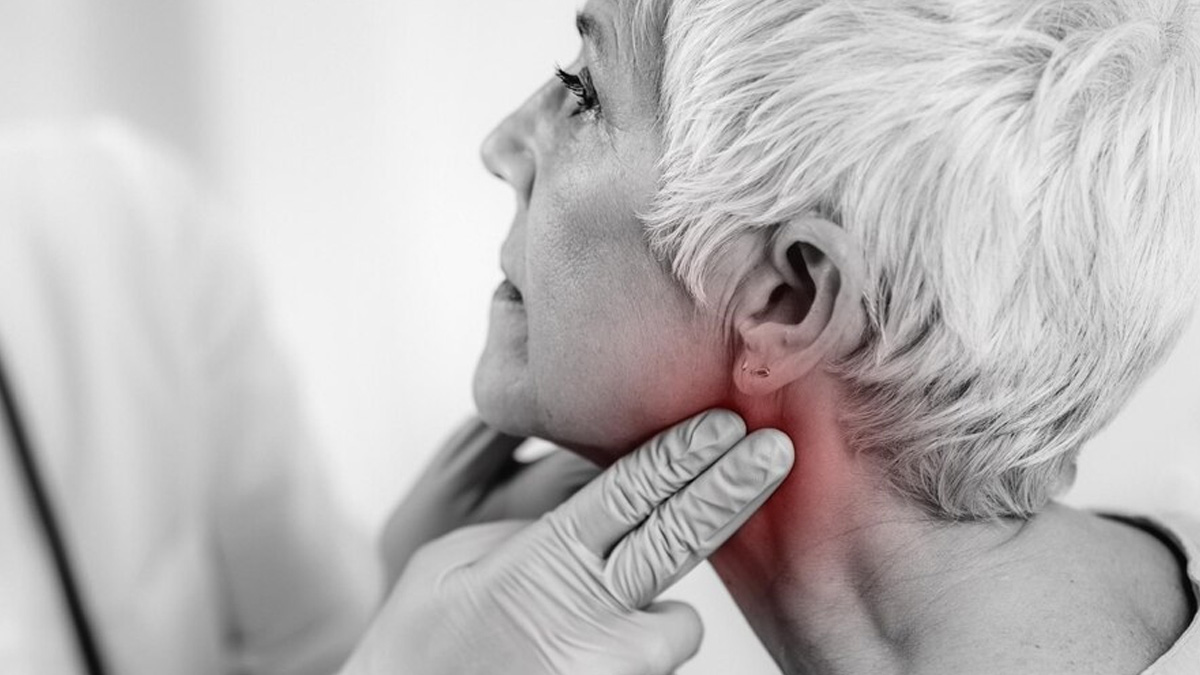
With cancer cases rising sharply across the nation, medical experts recently emphasised the need to focus on head and neck cancer. Specialists from Apollo Cancer Centres and Kokilaben Dhirubhai Ambani Hospital have noted a significant increase in this type of cancer in India in recent years.
Table of Content:-
Head and neck cancer can be broadly categorised into two types: squamous cell carcinoma, which constitutes about 90% of cases, and thyroid/salivary gland cancers. Squamous cell carcinoma can develop in various areas from the brain to the collarbone.
Why Are Head And Neck Cancer Increasing In India?
The Onlymyhealth team spoke to Dr Shyam Aggarwal, Senior Consultant, Medical Oncology, Sir Ganga Ram Hospital, Delhi to understand why this increase occurred.
Defining Head and Neck Cancer, Dr Agarwal said, “Head and neck cancers originate and spread from the throat, voice box, nose, sinuses, mouth, and other related areas. They can be further sub-classified based on the specific body part where the cancer originates, such as the oral cavity, larynx (voice box), nasal cavity, among others.”

Head and Neck Cancer Risk Factors
He said, “One major factor contributing to the rise in head and neck cancers is the widespread use of tobacco in India.”
The Apollo and Kokilaben experts stated that approximately one-third of the population aged 15 and older consumes tobacco, whether through smoking or smokeless products like gutka. Experts highlight that any form of tobacco use significantly increases cancer risk, and the risk is even higher for those who also consume alcohol.
As per the other factors, Dr Aggarwal listed:
- Extreme exposure to the sun
- Human Papilloma Virus infection
- Poor oral hygiene
- Genetic susceptibility
- Weak immunity
- Poor nutrition
Also Read: Diagnosed With Neck Cancer? Expert Shares Diet Plan To Follow During Treatment

Addressing Increasing Head And Neck Cancer In India
The Rajiv Gandhi Cancer Institute and Research Centre states that as per GLOBOCAN 2020, India will see 2.1 million new Head and Neck cancer cases in 2040, which is an increase of 57.5% from 2020.
Addressing these issues through education and cessation programmes could help reduce cancer rates. While stringent regulations on alcohol and tobacco and lifestyle measures are important to curb this incidence, knowing the symptoms of head and neck cancer can at least help people seek treatment on time. Dr Aggarwal listed these symptoms of Head and Neck cancer:
- Persistent mouth sores
- Bleeding in the mouth or throat
- Tooth problems
- Earaches
- Difficulty swallowing
- Neck lumps
“Individuals experiencing these symptoms for an extended period should seek medical evaluation. Those who use tobacco and alcohol are at particularly high risk. Early detection improves the chances of successful treatment,” said Dr Aggarwal.
Also Read: Head And Neck Cancer: How To Self-Examine For Tumour Presence
The Apollo and Kokilaben hospitals concluded on the need for increasing awareness of the dangers of tobacco use. Stronger enforcement of policies that limit tobacco use could also be beneficial. Educating young people about the risks is crucial to prevent adopting these harmful habits. Additionally, screening programmes can aid in the early diagnosis and management of head and neck cancers. By addressing risk factors and enhancing access to healthcare, the rise in this prevalent cancer can potentially be curbed.
Also watch this video
How we keep this article up to date:
We work with experts and keep a close eye on the latest in health and wellness. Whenever there is a new research or helpful information, we update our articles with accurate and useful advice.
Current Version